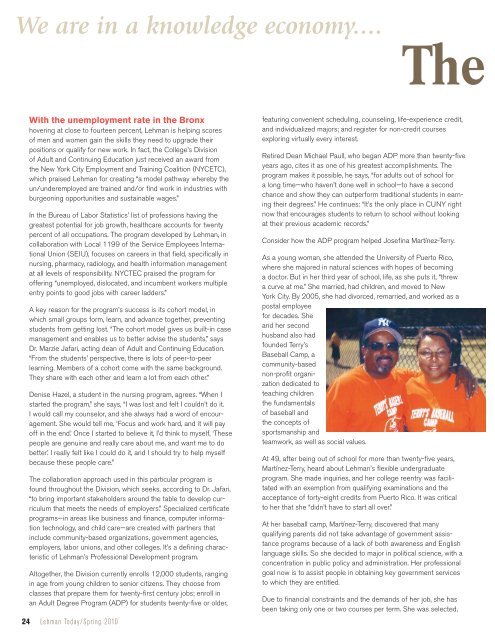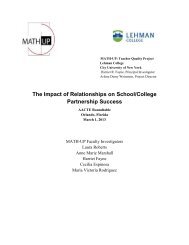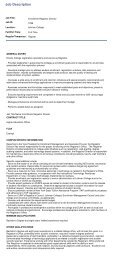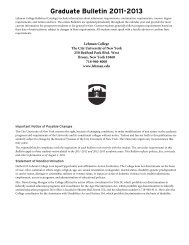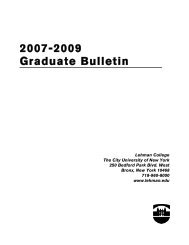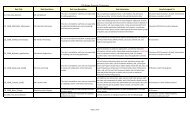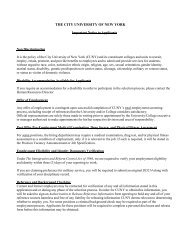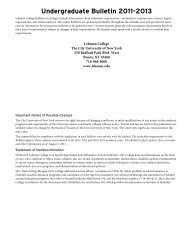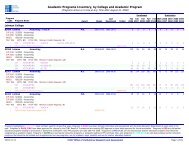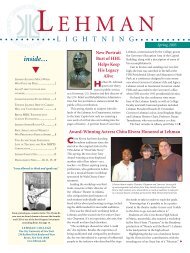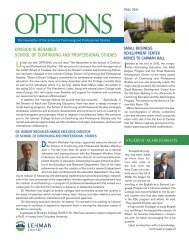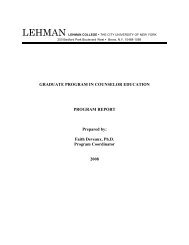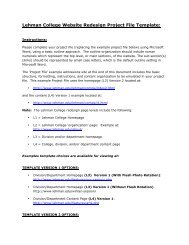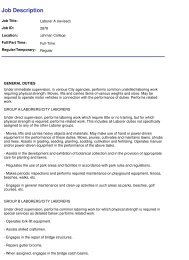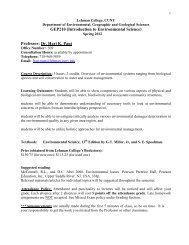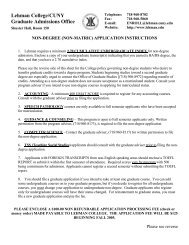Entering a New Era of Multimedia - Lehman College
Entering a New Era of Multimedia - Lehman College
Entering a New Era of Multimedia - Lehman College
Create successful ePaper yourself
Turn your PDF publications into a flip-book with our unique Google optimized e-Paper software.
We are in a knowledge economy....<br />
With the unemployment rate in the Bronx<br />
hovering at close to fourteen percent, <strong>Lehman</strong> is helping scores<br />
<strong>of</strong> men and women gain the skills they need to upgrade their<br />
positions or qualify for new work. In fact, the <strong>College</strong>’s Division<br />
<strong>of</strong> Adult and Continuing Education just received an award from<br />
the <strong>New</strong> York City Employment and Training Coalition (NYCETC),<br />
which praised <strong>Lehman</strong> for creating “a model pathway whereby the<br />
un/underemployed are trained and/or find work in industries with<br />
burgeoning opportunities and sustainable wages.”<br />
In the Bureau <strong>of</strong> Labor Statistics’ list <strong>of</strong> pr<strong>of</strong>essions having the<br />
greatest potential for job growth, healthcare accounts for twenty<br />
percent <strong>of</strong> all occupations. The program developed by <strong>Lehman</strong>, in<br />
collaboration with Local 1199 <strong>of</strong> the Service Employees International<br />
Union (SEIU), focuses on careers in that field, specifically in<br />
nursing, pharmacy, radiology, and health information management<br />
at all levels <strong>of</strong> responsibility. NYCTEC praised the program for<br />
<strong>of</strong>fering “unemployed, dislocated, and incumbent workers multiple<br />
entry points to good jobs with career ladders.”<br />
A key reason for the program’s success is its cohort model, in<br />
which small groups form, learn, and advance together, preventing<br />
students from getting lost. “The cohort model gives us built-in case<br />
management and enables us to better advise the students,” says<br />
Dr. Marzie Jafari, acting dean <strong>of</strong> Adult and Continuing Education.<br />
“From the students’ perspective, there is lots <strong>of</strong> peer-to-peer<br />
learning. Members <strong>of</strong> a cohort come with the same background.<br />
They share with each other and learn a lot from each other.”<br />
Denise Hazel, a student in the nursing program, agrees. “When I<br />
started the program,” she says, “I was lost and felt I couldn’t do it.<br />
I would call my counselor, and she always had a word <strong>of</strong> encouragement.<br />
She would tell me, ‘Focus and work hard, and it will pay<br />
<strong>of</strong>f in the end.’ Once I started to believe it, I’d think to myself, ‘These<br />
people are genuine and really care about me, and want me to do<br />
better.’ I really felt like I could do it, and I should try to help myself<br />
because these people care.”<br />
The collaboration approach used in this particular program is<br />
found throughout the Division, which seeks, according to Dr. Jafari,<br />
“to bring important stakeholders around the table to develop curriculum<br />
that meets the needs <strong>of</strong> employers.” Specialized certificate<br />
programs—in areas like business and finance, computer information<br />
technology, and child care—are created with partners that<br />
include community-based organizations, government agencies,<br />
employers, labor unions, and other colleges. It’s a defining characteristic<br />
<strong>of</strong> <strong>Lehman</strong>’s Pr<strong>of</strong>essional Development program.<br />
Altogether, the Division currently enrolls 12,000 students, ranging<br />
in age from young children to senior citizens. They choose from<br />
classes that prepare them for twenty-first century jobs; enroll in<br />
an Adult Degree Program (ADP) for students twenty-five or older,<br />
24 <strong>Lehman</strong> Today/Spring 2010<br />
The<br />
featuring convenient scheduling, counseling, life-experience credit,<br />
and individualized majors; and register for non-credit courses<br />
exploring virtually every interest.<br />
Retired Dean Michael Paull, who began ADP more than twenty-five<br />
years ago, cites it as one <strong>of</strong> his greatest accomplishments. The<br />
program makes it possible, he says, “for adults out <strong>of</strong> school for<br />
a long time—who haven’t done well in school—to have a second<br />
chance and show they can outperform traditional students in earning<br />
their degrees.” He continues: “It’s the only place in CUNY right<br />
now that encourages students to return to school without looking<br />
at their previous academic records.”<br />
Consider how the ADP program helped Josefina Martínez-Terry.<br />
As a young woman, she attended the University <strong>of</strong> Puerto Rico,<br />
where she majored in natural sciences with hopes <strong>of</strong> becoming<br />
a doctor. But in her third year <strong>of</strong> school, life, as she puts it, “threw<br />
a curve at me.” She married, had children, and moved to <strong>New</strong><br />
York City. By 2005, she had divorced, remarried, and worked as a<br />
postal employee<br />
for decades. She<br />
and her second<br />
husband also had<br />
founded Terry’s<br />
Baseball Camp, a<br />
community-based<br />
non-pr<strong>of</strong>it organization<br />
dedicated to<br />
teaching children<br />
the fundamentals<br />
<strong>of</strong> baseball and<br />
the concepts <strong>of</strong><br />
sportsmanship and<br />
teamwork, as well as social values.<br />
At 49, after being out <strong>of</strong> school for more than twenty-five years,<br />
Martínez-Terry, heard about <strong>Lehman</strong>’s flexible undergraduate<br />
program. She made inquiries, and her college reentry was facilitated<br />
with an exemption from qualifying examinations and the<br />
acceptance <strong>of</strong> forty-eight credits from Puerto Rico. It was critical<br />
to her that she “didn’t have to start all over.”<br />
At her baseball camp, Martínez-Terry, discovered that many<br />
qualifying parents did not take advantage <strong>of</strong> government assistance<br />
programs because <strong>of</strong> a lack <strong>of</strong> both awareness and English<br />
language skills. So she decided to major in political science, with a<br />
concentration in public policy and administration. Her pr<strong>of</strong>essional<br />
goal now is to assist people in obtaining key government services<br />
to which they are entitled.<br />
Due to financial constraints and the demands <strong>of</strong> her job, she has<br />
been taking only one or two courses per term. She was selected,


